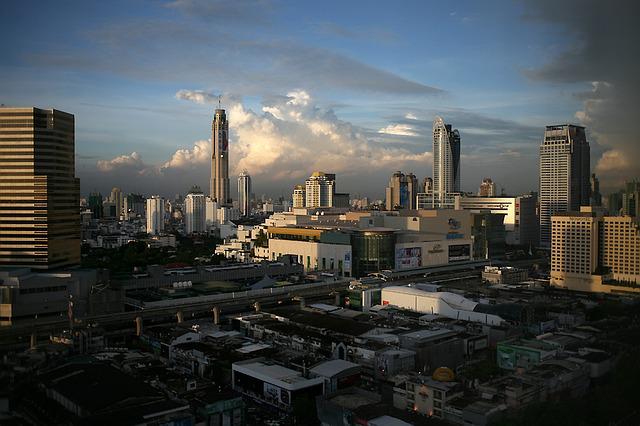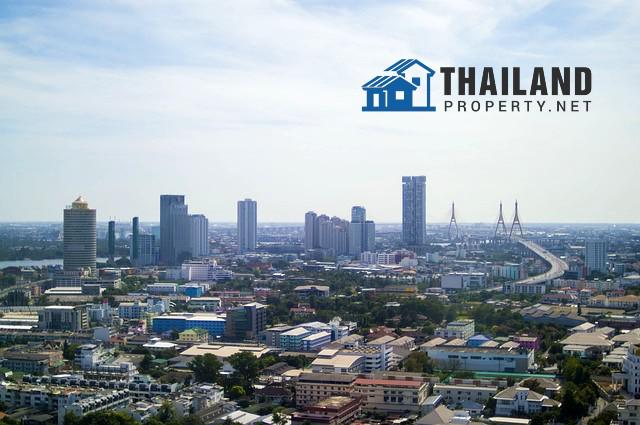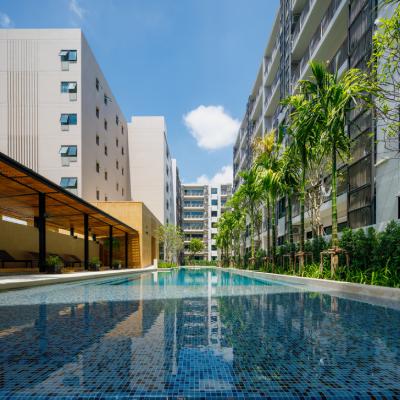
Thailand-property.net

Thailand-property.net
Thailand-property.net
New Land & Property Tax Will Affect Vacant Lot Owners
The Thai property market is bracing for a new Land and Property Tax policy, set to take effect on January 2020 onward. While expected to raise revenue for the tax office, the new real estate tax policy may affect vacant land in view of the fact that there are so many unused sites in Bangkok. After the new land tax in January next year, owners of vacant lots will pay taxes for the first time.
Owners of empty lots are not keen to pay higher tax rates. They try to offset the likely costs by designating areas for commercial use. In this manner, rather than resort to selling their land, owners generate sufficient income from unused land that will enable them to pay higher taxes after the new law is effective.

Countering Property Tax Costs & Likely Risks
Since January 2020 is just around the corner, owners rush to develop parts of their vacant lot for commercial use. Little did they know that they are creating a bigger financial burden through sub-standard land developments.
Due to lack of market knowledge, experience and skills, they may build something that has no demand. More than the property tax, they will have to pay their loans alongside a failed development project.
For many sites, commercial development of office, retail or residential for rent will not be feasible on the site because of either the location or size of the land. The site owners may also not have the commercial expertise or financial resources to develop the site themselves.
What Landowners Can Do
Landowners should assess the amount of tax they will have to pay. Once they are able to grasp their tax responsibilities, they should carefully examine the income-generating opportunities their site could possibly offer.
One way of generating income would be to capitalise on parking rent. For locations where people own cars but do not have enough parking spaces at home, this is a very viable solution.
Many Japanese cities already profited from this idea. Small land sites transformed into commercial parking spaces are common in Japan. The site will be covered in asphalt and installed with automatic parking systems. A third party usually runs these commercial parking lots.
Despite the fact that parking rates are cheaper in Thailand than in Japan, allocating parking spaces is the easiest form of income-generation among projects with little capital outlay.
A second alternative is that some owners will look at leasing out the site to a third party. Leasing land could be both for short term or long term. However, only certain locations have development potential and demand from third party tenants.
In Conclusion
Finding new revenue streams may be difficult for some landowners. They also have to contend with the burden of new tax rates and will eventually decide to sell their property.
It is expected that more sites will be available for sale next year. The system of demand and supply will even the field between asking prices and homebuyers’ expectations.
Another question raised but lacks a clear answer is the definition and interpretation of land use. Whether the new land tax law will cover agricultural land is still debatable. Unlike other land use, agricultural lands pay less taxes.
Original Source: Article on The Nation’s Property by Aliwassa Pathnadabutr, CBRE Thailand’s Managing Director of CBRE written on 24 May 2019.

 In limbo between a sluggish economy, growing household debt and excess supply, 2019 presented quite a challenge to Bangkok's ...
In limbo between a sluggish economy, growing household debt and excess supply, 2019 presented quite a challenge to Bangkok's ...  It seems this year will be a good one for Hua Hin's real estate market. SET-listed Charn Issara ...
It seems this year will be a good one for Hua Hin's real estate market. SET-listed Charn Issara ... 
